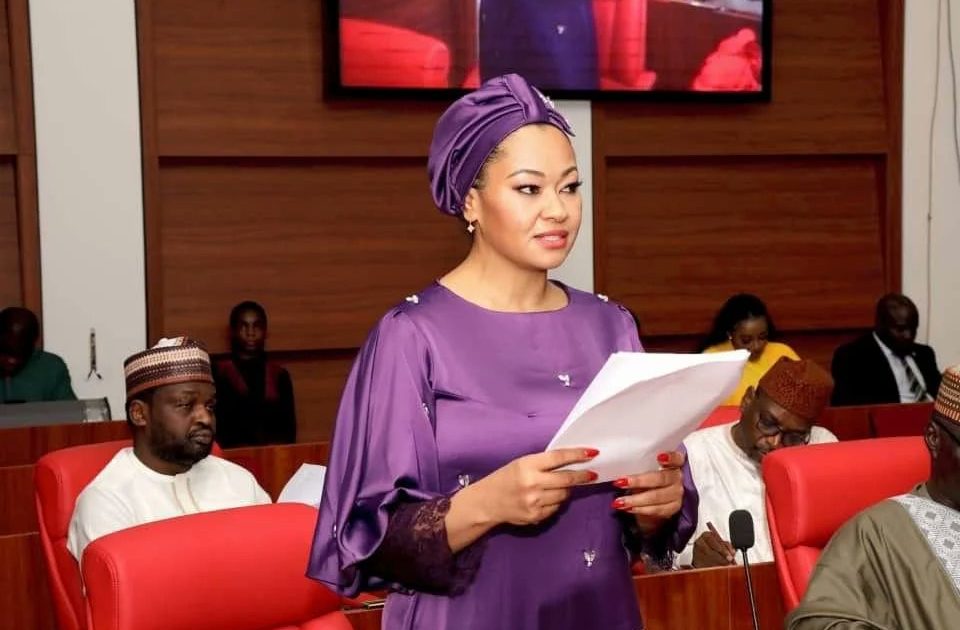The political landscape of Nigeria witnessed a dramatic turn of events as Senator Natasha Akpoti-Udaughan, representing Kogi Central, issued a seemingly apologetic letter to Senate President Godswill Akpabio, addressing the sexual harassment allegations she had previously leveled against him. This apology, however, was far from straightforward, laced with sarcasm and satire, further intensifying the already strained relationship between the two political figures. The backdrop of this incident is a series of disagreements between Akpoti-Udaughan and the Senate leadership, beginning with a controversial seating arrangement that the senator perceived as a deliberate attempt to undermine her position. This initial conflict escalated dramatically when Akpoti-Udaughan publicly accused Akpabio of sexual harassment, claiming that her refusal to comply with his advances led to retaliatory actions against her.
Akpoti-Udaughan’s accusations against Akpabio were made on an international platform, during the Women in Parliament session at the Inter-Parliamentary Union meeting held at the United Nations headquarters in New York. She called for international intervention to hold the Nigerian Senate accountable for what she described as unfair treatment. The senator detailed the repercussions she faced, including the withdrawal of her security detail, salary cuts, and a six-month suspension from the National Assembly. These actions, she argued, were direct consequences of her rejection of Akpabio’s alleged advances, painting a picture of a hostile and discriminatory environment within the Nigerian Senate.
The public nature of these allegations led to a legal battle between Akpoti-Udaughan and Akpabio. A court order subsequently barred both parties from publicly discussing the case or making statements to the press until the legal proceedings reached a conclusion. This gag order aimed to prevent further escalation of the conflict and maintain the integrity of the ongoing legal process. However, despite the court order, tensions remained high, and the underlying issues remained unresolved.
Despite the court-imposed silence, the conflict resurfaced when Akpoti-Udaughan penned a letter to Akpabio, ostensibly an apology. However, the letter’s tone was far from contrite. It was dripping with sarcasm, suggesting that the apology was anything but sincere. She mocked the alleged culture of entitlement and the expectation of “compliance” within the Senate, implying that success was often achieved through dubious means rather than merit. The letter’s satirical nature underscored the deep-seated resentment and distrust between the two senators, highlighting the ongoing power struggle within the Nigerian political arena.
Akpoti-Udaughan’s “apology” was carefully crafted, using veiled language to reiterate her initial accusations without explicitly violating the court order. She implied that her refusal to comply with Akpabio’s alleged advances had disrupted the established order, leading to the retaliatory actions against her. She sarcastically lamented the “bruising of egos” caused by her resistance, further mocking the alleged sense of entitlement within the Senate. The letter served as a thinly veiled critique of the political climate, suggesting that personal favors and compliance, rather than merit and dedication to public service, often dictated the course of legislative action.
The letter’s concluding paragraph solidified its satirical intent. Akpoti-Udaughan reaffirmed her belief that her position in the Senate was earned through a democratic election and not through compromising her principles. She signed off with a defiant declaration, describing herself as “unafraid, unbought, and unbroken,” emphasizing her resolve to continue challenging what she perceived as injustice within the Nigerian Senate. The letter, while framed as an apology, ultimately served as a powerful statement of resistance against alleged corruption and abuse of power, highlighting the ongoing struggle for accountability and transparency within Nigeria’s political system. The ongoing legal battle and the public exchange of accusations and veiled responses between Akpoti-Udaughan and Akpabio continue to draw attention to the challenges facing Nigerian democracy.














